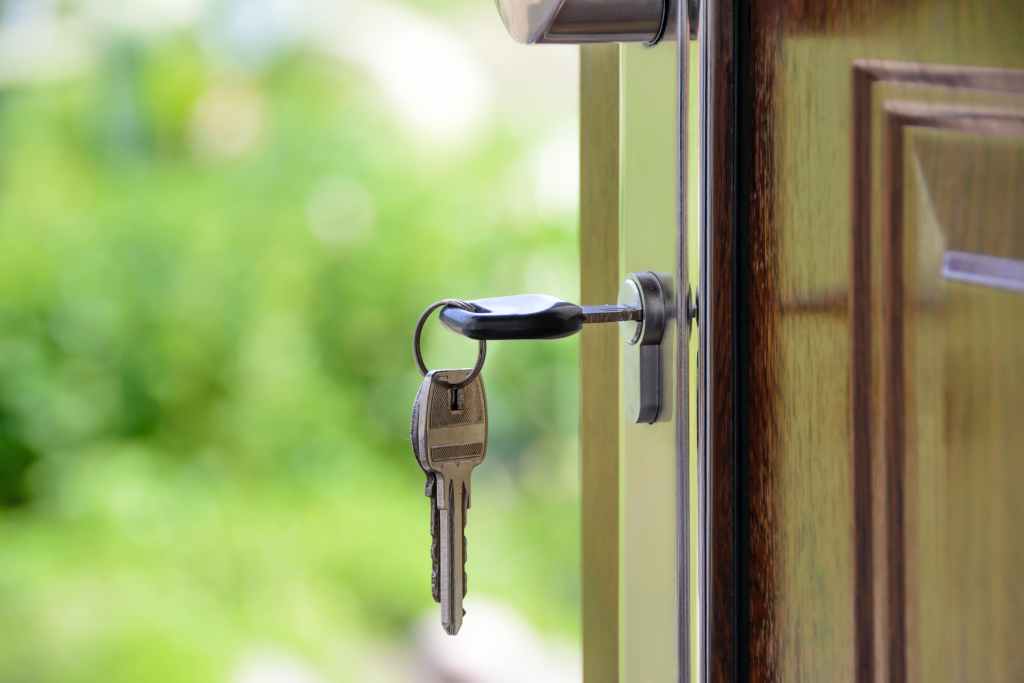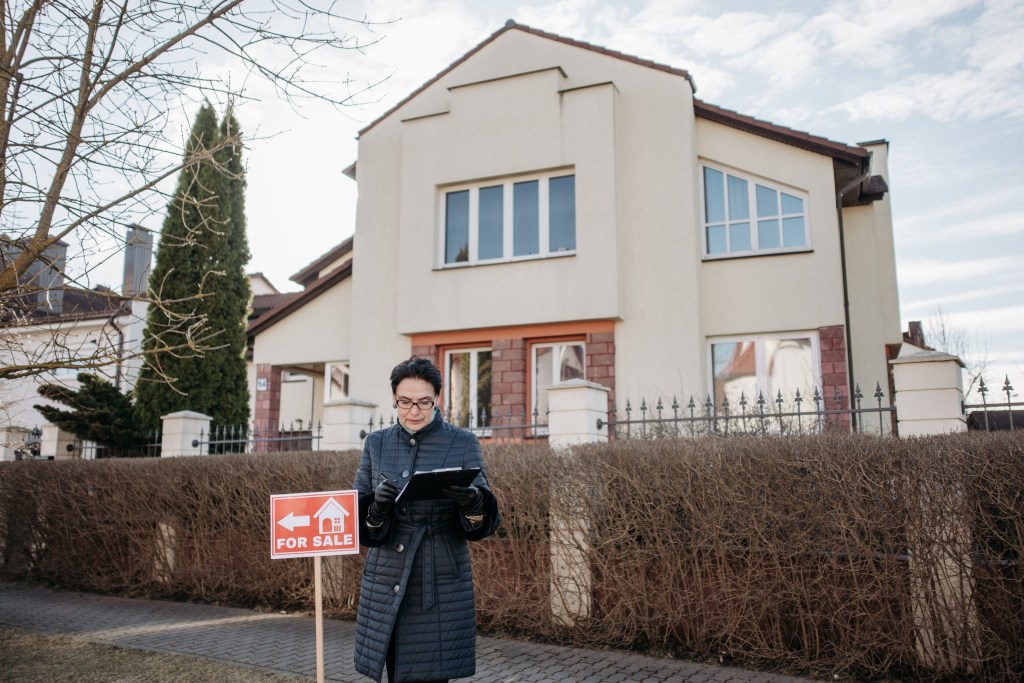The coronavirus has impacted life for everyone. Millions of people began working from home during the pandemic, and while some companies have returned to normal operations, others recognized the advantages of remote work and have decided to let employees continue to work from home indefinitely. What does that mean for homebuyers? People are considering options that weren’t available to them prior to the pandemic.
For real estate agents, the pandemic initially led to confusion, but many real estate professionals saw incredible success once they figured out how to adjust. Jeff Dennis, broker associate at Coldwell Banker Solano Pacific and past president of the Solano Association of Realtors, said the shift to working from home “put a damper on sales” at first, but “we actually had a banner year once we figured out how to navigate it.”
In some ways, life has already returned to normal. Some changes, though, may be here to stay.

Remote work has given buyers flexibility in terms of location
According to McKinsey, more than 20 percent of the workforce could work from home three to five days a week without any impact on their effectiveness. And workers know it: A Gallup study found that 91% of workers currently working from home at least part of the time would prefer to keep that flexibility after the pandemic.
The switch to remote work has opened up a world of possibilities for people across the United States. If employees no longer need to report to a physical office, they can work from anywhere with a reliable internet connection.
That gives workers flexibility that they could only dream of prior to the pandemic. Those who worked in expensive metropolitan areas can now buy a house for less than they were paying in rent or purchase a larger property with a lower mortgage payment. In some places, demand for homes in suburban areas has spiked since employees who no longer have to commute to physical offices in major cities are seeking homes with more space and privacy.
Workers are now free to move closer to relatives or relocate to areas where they had always dreamed of living but couldn’t before the pandemic due to a lack of job opportunities in their field. Some people have relocated hundreds or thousands of miles from their former homes.
According to Dennis, his agency “had a lot of people who moved out of state” during the pandemic. “A big part of that uptick in activity was people who no longer had to commute to a city,” he said.
Indeed, Boise, Idaho, saw a 41% jump in home prices compared to a year earlier, and realtors report that people are looking outside major metropolitan areas: New Yorkers are searching for homes in Connecticut’s Fairfield County, for instance.
That trend is likely to continue after the pandemic. According to a recent Realtor.com survey, 62% of recent homebuyers are in favor of remote work. With workers no longer tethered to a physical office, they don’t have to struggle to afford a home in an expensive area or deal with a stressful commute. While some people are eager to return to pre-pandemic life, many who struggled to make ends meet before COVID or who were exhausted by a daily commute are expected to move to areas where they can enjoy a more relaxed life with more free time and less financial stress.

Buyers focus on different criteria than they did before COVID
The pandemic forced millions of people to stay at home with their families for months at a time. In some cases, people had to quickly figure out how to work from home. Those experiences caused many to reevaluate their priorities.
According to Dennis, people who are searching for a new home are “looking at options the house might provide and asking themselves, ‘What can I do with this space?’”
For example, people who plan to continue working from home after the pandemic are thinking about how to make that experience more comfortable. Individuals who didn’t have a home office and had to work at their kitchen tables are now looking for houses with a separate space where they can have peace and quiet.
Families are also focusing more on spending quality time together. Homebuyers are looking for living spaces that are functional and comfortable and are putting more emphasis on the size of the yard and other outdoor features.
COVID has led to a seller’s market
During the pandemic, mortgage rates fell to historic lows. And while they’ve recently jumped to their highest level since April, at just over three percent, they’re still at relatively low levels.
For people who can afford to buy a house, that’s great news because low interest rates increase borrowing capacity. In other words, buyers can borrow a larger amount than they might otherwise because they don’t have to worry so much about interest raising their overall payment amount.
The downside is that low interest rates have made buying a house more affordable for millions of people. That, plus the fact that many people delayed buying or selling a house during the pandemic (and the fact that people who can work from home have newfound flexibility) has led to high demand for houses.
Properties are being snapped up nearly as soon as they hit the market. Buyers are placing bids well above asking price in order to have a shot at getting a house.
Dennis said he and his team have seen “lots of activity, lots of buyers, multiple offers.” However, he added, “[It’s] not as crazy as it was in April, May, or June of this year when things were white-hot.”
At that time, sellers often received 15 to 20 offers. “Now they get five or six if it’s priced right,” Dennis said. Although the frenzy has “slowed down some,” there are “still more buyers out there than we have inventory.”
He described the current climate as a “strong seller’s market” and said, “Buyers have to be aggressive when they make an offer… We’re not anywhere near balanced.”

Changes in employment can make it challenging to qualify for a mortgage
For many people, the pandemic led to unemployment. In some cases, people were out of work temporarily. Others saw their jobs disappear when their companies shut down, while still others reflected on their career paths and decided to look for a new position in an entirely different industry or start a new business.
People who got laid off during the pandemic, who sought jobs in different fields, or who opened their own businesses may find it difficult to qualify for a mortgage without a record of consistent employment and reliable income. Lenders gave buyers some flexibility because of the coronavirus but, according to Dennis, “A lot of people who opted out of their job situation or were furloughed and never came back are having a tough time” qualifying for a mortgage now.
For people who recently settled into a new job or started a new career, that will likely be an issue for the foreseeable future. As a general rule, mortgage lenders look for a record of stable employment and reliable income. People who want to buy a house may find it difficult to qualify for a mortgage until they have established a track record that is long enough to satisfy a lender’s requirements.
The pandemic has impacted savings rates and down payments
The economic fallout from the coronavirus forced many people to use their savings to get by. Almost 20% of U.S. households have reported losing all of their savings during the pandemic. Those who were saving for a down payment on a house may now have less money to put toward that goal.
On the other hand, some people increased their savings rate during the pandemic because they spent less on travel, dining out, and other nonessentials. Those individuals and families were able to save more money to put toward a down payment on a house.
According to Statista, while households that were able to increase their savings were in the minority in 2020, they did exist. More Americans reported increasing their savings in the back half of the year.
That extra money can come in handy in a competitive seller’s market. Since buyers are frequently offering more than a house is worth, they have to make up the difference between the appraised amount and the sale price in cash. Otherwise, a lender won’t approve a mortgage.
Dennis said, “I bet that a lot of people are putting significant cash down.” That’s likely to continue as long as demand and prices remain high.

Will virtual tours and closings persist?
Because of social distancing rules, real estate agents across the United States began to provide virtual tours and virtual closings to keep all parties involved in the process safe. Virtual tours and closings can be particularly helpful for buyers who are interested in properties in other states, who want to move quickly before someone else snags a house, and who don’t have time to visit a home in person.
Those trends are likely to continue after the pandemic, although in some cases, people may prefer to conduct business in person or may have to do so. Dennis said counties in California can handle transactions remotely, but notaries can still meet with clients in person. Appraisers typically have to see a house in person, he added.
While virtual tours are convenient, Dennis doesn’t see them becoming a way of life.
“I think the impact of virtual tours is very strong, but I think the process of physically seeing the house is going to be the final deciding factor,” Dennis said. “I think there are enough anecdotal stories of things going awry that people are being careful.”
The outlook for the housing market is uncertain
The current housing market, with high demand, high prices, and buyers rushing to grab properties they haven’t seen, has led to widespread concerns. Dennis, who has worked in the real estate business since 1976, said he does not expect a repeat of the 2008-2009 crash because of tight lending restrictions that were put in place in response to that crisis.
“We’re anticipating some pullback at some point, but not the crash that we saw in those days. If we see a pullback, it will be based on the overall economy, not just the real estate sector,” Dennis said.
If the Federal Reserve keeps interest rates low, Dennis expects demand for houses to continue to grow until homes become unaffordable for the average buyer, prices level off, and interest rates rise. “If interest rates start to creep up, we will begin to see a slowing in the overall market,” Dennis said.
However, he added, “The Fed can’t raise rates” because that could harm other sectors of the economy that are struggling and “would lead to an economic recession… I don’t see a crash, but I do see some movement toward a more stabilized market.”
It’s unclear when the pandemic will end and how far-reaching and long-lasting its impact will be. What is clear is that companies and workers across the United States have been rethinking the way they conduct business and reassessing their priorities. Employees have more freedom and flexibility than they had in the past and are eager to take advantage of it.



